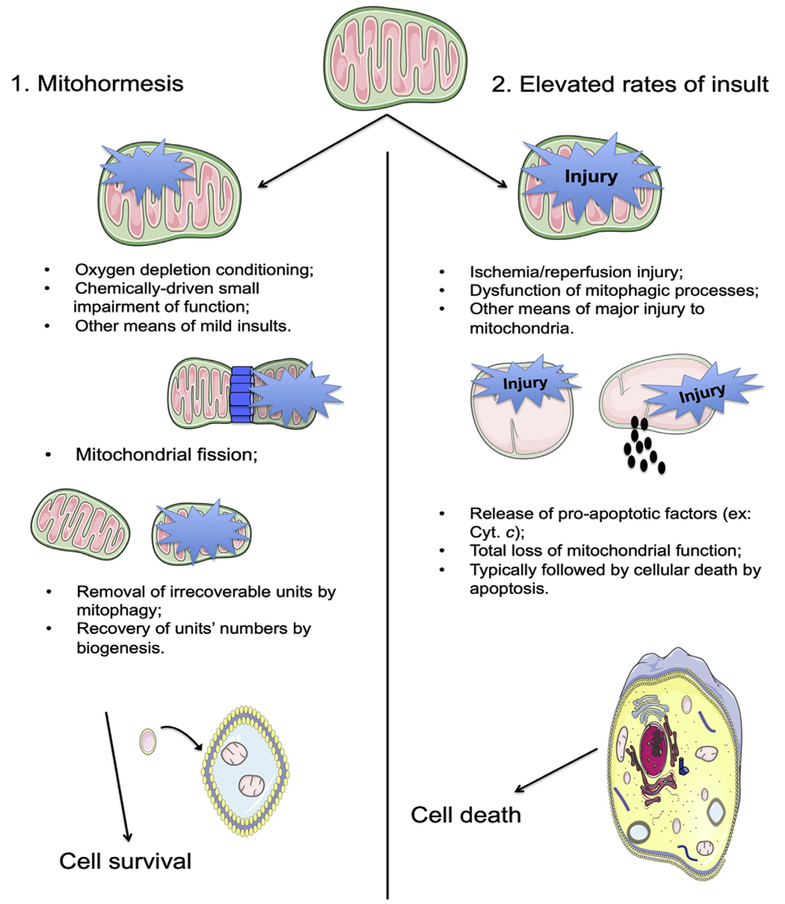Fig. 3. Comparison between (1) mild, mitohormetic-inducing events and (2) highly injurious phenomena and respective downstream events.
A mild insult to a cell's mitochondrial population (such are, for example, small bursts of oxygen and nutrient deprivation, extremely low doses of mitochondrial inhibitors/toxicants) is a conditioning stimulus for the removal of older, less functional, more susceptible mitochondria from the population pool, allowing it to be repopulated by the generation of new, unharmed (biogenesis) mitochondria (1). However, if this insult is too prolonged or highly harmful, or if the cell has an inherent condition (for example, aged mitochondria with a lower threshold for damage or alterations in the typical players of the mitophagic event, such is the case with Parkin mutations in Parkinson's Disease) that renders it more sensitive to the insult, then ROS generation can be too elevated and widespread for the cell to repopulate the mitochondrial pool (2). In this case, the insult will normally lead to cell death, typically by apoptosis.

